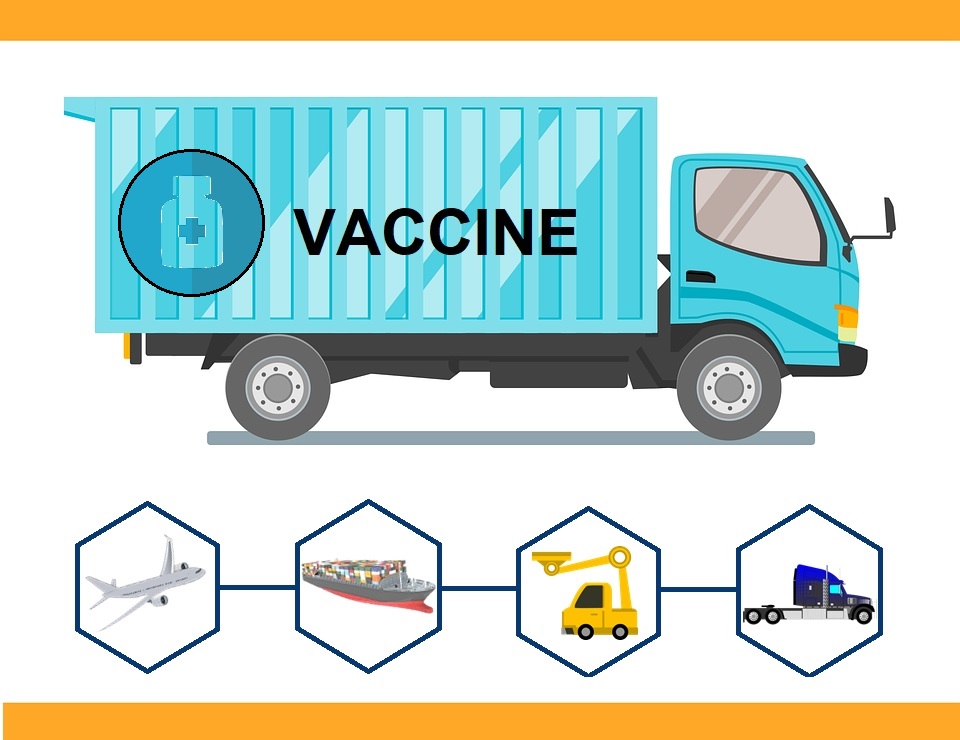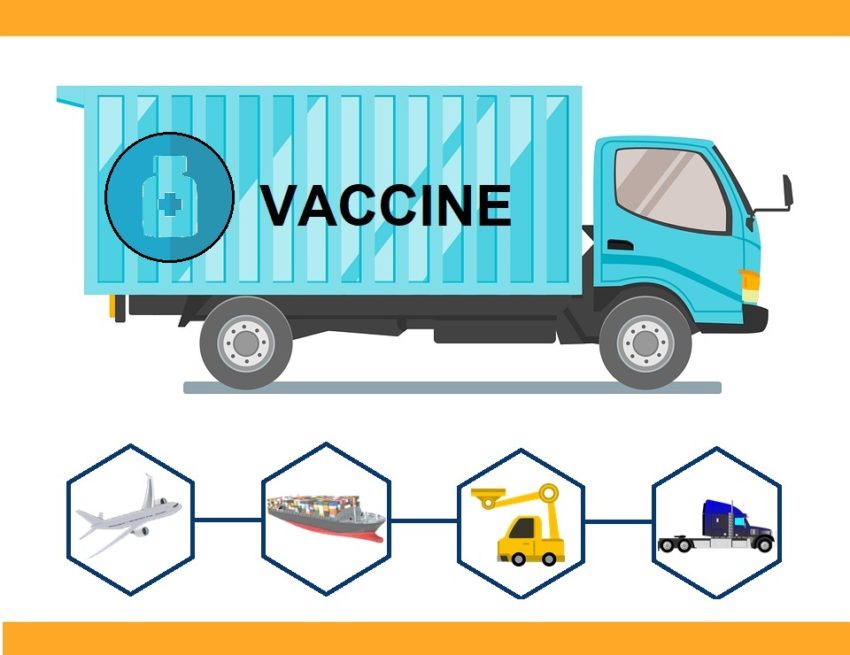As the hunt for the Coronavirus vaccine gains momentum, considerable emphasis is being placed on the numerous challenges of shipping the vaccine
The world’s hope of getting out of this global pandemic rests on the speedy discovery of a vaccine that will stop or slow the spread of this menacing virus. Pharmaceutical companies in 150 countries around the world including the UK, Russia, and the USA among others are working overtime to get the vaccine ready by the end of this year. However, the discovery of the vaccine is by no means the final step in defeating the virus. Although the multinational pharmaceutical company AstraZeneca has stated that they will be able to supply two billion doses of the vaccine both nationally as well as globally, there is a whole new set of logistical challenges with regards to the effective distribution of the vaccine.
A Rocky Road Ahead: The Logistical Challenges Facing Us
Shipping the vaccine from the drug makers to billions of people worldwide is an exigent task that needs to be done within the shortest possible span of time. Pharmaceutical companies, governmental authorities, supply chain service providers, and NGOs are trying their best to prepare the supply chain for such a humungous number of vaccines. The vaccine supply chain doesn’t only entail the production of the vaccine but also its storage, packing, cold-chain transfer, domestic and international delivery, distribution plans, warehousing, and more.
The vaccines would be delivered to nursing homes, drugstores, and vaccination points much like how medical teams have been created in schools, parking lots, and several other sites to speed up the process of testing. “We’ve never had to do something at this scale before,” states Mr. Remo Colarusso, the Vice President of Janssen Pharmaceutical Companies which is conducting clinical trials for the vaccine. Logistics companies that are already coping with the problem of reduced freight, reduced workforce and shrinking capacity on the cargo planes and container ships, are worried about the dreary processes of paperwork which will further slow down the movement of the vials of medicine in exceptional quantities. Neel Jones Shah, the head of Air Carrier Relationships of an international freight forwarding company says, “Let’s all be honest here, vaccine supply chains are exponentially more complex than PPE supply chain…You can’t ruin PPE by leaving it on the tarmac for a couple of days. You will destroy vaccines.”
8000 Freighter Aircrafts will be needed
As estimated by Julian Sutch, the Head of Emirates SkyCargo’s pharma division, one Boeing 777 cargo plane is capable of carrying 1 million doses of the vaccine. This implies that transferring the double-shot vaccines for half of the global population will entail the requirement of the space in around 8000 freight planes!
This is not unachievable but for this we need a synchronized global supply chain strategy. At the moment the idle passenger flights are helping to deal with the shortage of cargo planes. Emirates, for example is making use of 70 Boeing 777 passenger planes for moving freight.
Refrigeration is going to be yet another problem

Any vaccine that is expected to hit the market by the end of the year will require to be preserved at a temperature between 2 degrees to 8 degrees Celsius all through the distribution process. It is even being said that certain new technologies might necessitate more sophisti
cated freezers that can store the vaccine at the glacial temperature of minus 80 degrees Celsius and any divergence could potentially destroy the vaccines. Kenneth Frazier, the CEO of Merck &Co sums up the situation quite aptly, “Often people are talking about the scientific conundrum of coming forward with a vaccine that works. In some ways, maybe even a harder problem is what you just put your finger on, which is distribution…None of us are safe until all of us are safe, so it’s got to be given broadly to humanity. We need a vaccine that we can make and distribute around the world.”
Preparedness of the Airports
Another matter of consternation in this respect is the readiness of the airports. “If all of a sudden 20 to 30 charter flights land at Miami International Airport full of pharmaceuticals for distribution throughout the Americas, we’re going to have a challenge,” says Emir Pineda, the Manager of Aviation Trade and Logistics at Miami International Airport. The airways industry has jeopardized the normal functioning of the airline industry while pharmaceutical manufacturers are grappling with the problem posed by the shrinkage of cargo flights.
The Good News
Both government and private industry are now considering the prospects of increased cooperation to speed up the supply chain of the Covid-19 vaccine and to speed up the process of vaccine creation, production, and distribution. This collaboration will be done both in the fields of research, development as well as financing. UPS has declared their plans for collaborating with vaccine producers to transport the vials for trials and manufacturing. They will also participate in the distribution process of the vaccine once it hits the market. Moreover, all the vaccines will not be available at once which will give the supply chain operators and manufacturers enough time to accelerate production and distribution.


